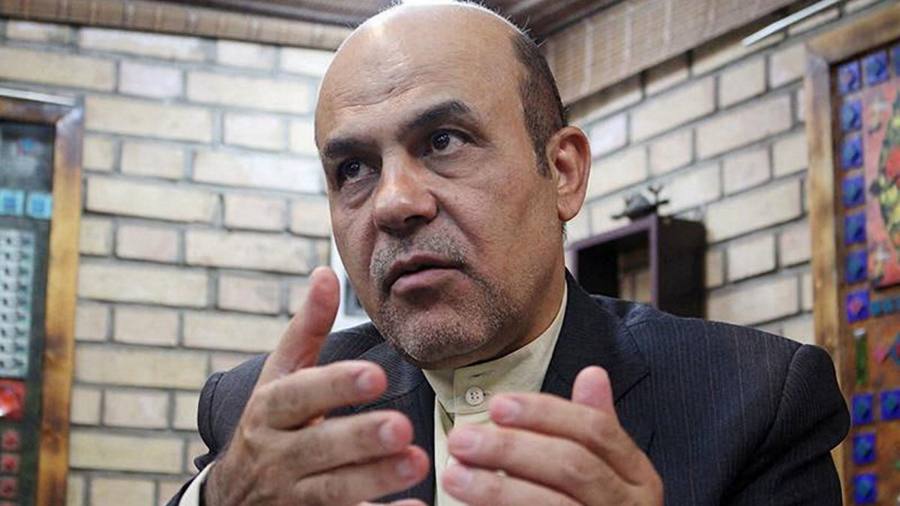[ad_1]
UK prime minister Rishi Sunak has accused Iran of a “cowardly act” after the Islamic republic executed an Iranian-British national convicted of espionage.
Iranian state media said the Islamic regime had hanged Alireza Akbari, who had held various senior positions in Iran’s security and military institutions, after he was accused of spying for Britain’s MI6 spy agency.
Sunak said in a post on Twitter that he was “appalled” by the execution. “This was a callous and cowardly act, carried out by a barbaric regime with no respect for the human rights of their own people,” he said. “My thoughts are with Alireza’s friends and family.”
The execution threatens to ramp up tensions between the UK and Iran, with relations already fraught as Iranian officials have blamed western powers for stoking months of protests against the republic.
Western officials have widely condemned Tehran’s crackdown against the protests, which erupted in September, as well as the regime’s decision to sell armed drones to Moscow, which Russia has used in its war against Ukraine.
Dozens of European nationals — mainly French and German — have been arrested in Iran, some of whom were detained after the protests erupted, according to western diplomats. It is believed to be the highest number of westerners ever detained in the Islamic republic.
British, German and French ambassadors have been regularly summoned to Iran’s foreign ministry for their countries’ alleged interference in the republic’s domestic affairs.
The protests erupted after Mahsa Amini died in the custody of Iran’s morality police after the 22-year-old was accused of not wearing her compulsory hijab properly. The protests have been one of the longest and largest eruptions of civil unrest since the 1979 Islamic revolution.
More than 300 demonstrators, including 44 children, have lost their lives, according to Amnesty International. Four protesters have also been executed since December.
Akbari, 61, was arrested in 2019 after he returned to Tehran from London, where he has relatives. His detention was not publicised by the Iranian or British governments nor his family until recently. The UK said it had regularly raised Akbari’s case, most recently on January 11.
Tasnim news agency, a state news agency, said Akbari had engaged with British spies and received cash and other benefits from MI6, including a British passport, €1.8mn, £265,000 and $50,000.
According to the indictment, published by Tasnim, Akbari acted “against national security”, “spying for Britain” over a long period of time. It alleged he held “extensive meetings” with MI6 agents in various countries which all caused “major disruptions in the country’s general order”.
Akbari held several senior positions in the Iranian government, and was a deputy defence minister from 1997 to 2002 when Ali Shamkhani was defence minister.
Shamkhani currently holds the regime’s top security position as secretary of the Supreme National Security Council.
Akbari had allegedly provided British spies with information about 178 officials in Iran notably Mohsen Fakhrizadeh, a nuclear scientist who was assassinated in Iran in 2020. It is widely believed that Israeli agents killed the scientist.
In an audio file released by the BBC’s Persian Service last week that was purported to be of Akbari speaking, the dual national claimed he had made a false confession after being tortured, held in solitary confinement and interrogated for up to 4,000 hours.
British foreign secretary James Cleverly said on Twitter: “This barbaric act deserves condemnation in the strongest possible terms. This will not stand unchallenged. My thoughts are with Alireza Akbari’s family.”
David Lammy, shadow foreign secretary, said that Labour condemned the “atrocious, cowardly and authoritarian execution”.
“The Iranian regime must be held accountable for its flagrant breaches of human rights and international law. All state-sanctioned death sentences must be immediately quashed.”
[ad_2]
Image and article originally from www.ft.com. Read the original article here.

